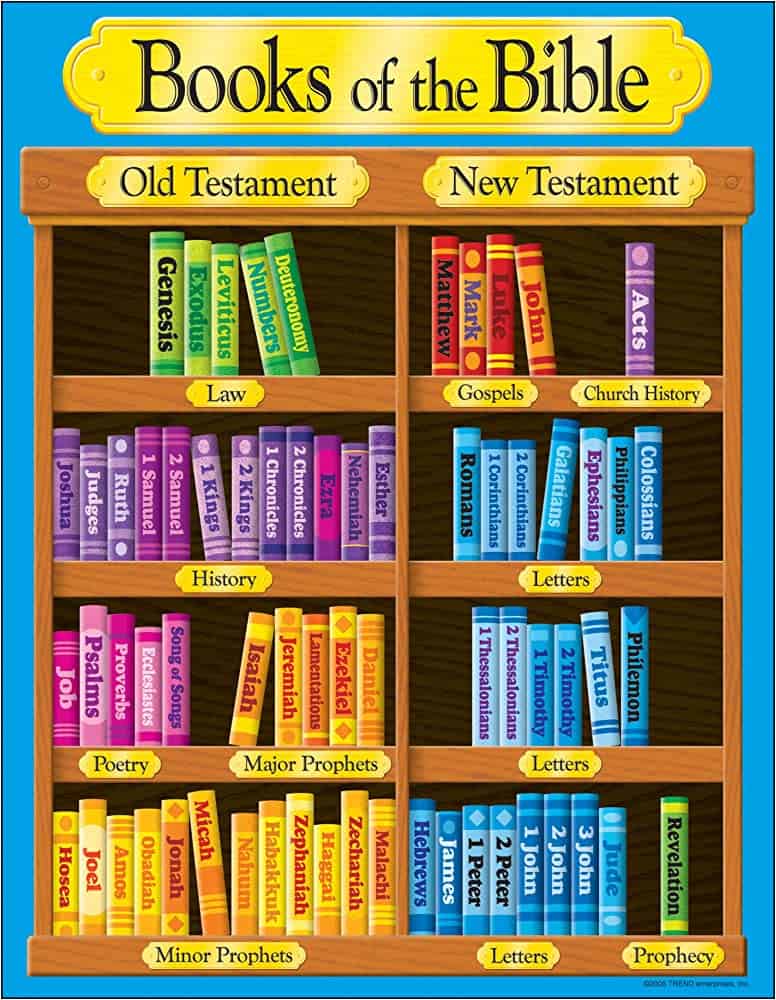
Are you ready for an exciting journey into the amazing world of the Bible? This blog, “The Beginner’s Guide to Reading the Bible: A Step-by-Step Approach,” will be your guide as we explore the treasures hidden within its pages. From unraveling its secrets to discovering practical techniques, we’ll empower you with the tools you need to navigate God’s Word. Together, let’s embark on an adventure that will transform your understanding and bring you closer to the incredible wisdom found in the Bible. Get ready to dive in and unlock the treasures that await you!
What is the Bible?
The Bible is the sacred text of Christianity, regarded by believers as the inspired Word of God, providing guidance and wisdom for faith and life.
"All Scripture is God-breathed and is useful for teaching, rebuking, correcting and training in righteousness, so that the servant of God may be thoroughly equipped for every good work." Timothy 3:16-17
Why You Should Read the Bible?
The Bible is a special book for Christians, serving as the foundation of our faith. When you read the Bible, amazing things happen! Your faith grows stronger, you receive guidance, and you gain wisdom. Some may question its relevance today, but let me assure you, the Bible is still incredibly important.
Reading the Bible deepens your faith. It’s like a superpower that helps you understand who God is and what He wants for your life. Just as a guidebook helps you navigate a new place, the Bible guides you on your spiritual journey. It shows you how to love others, make good choices, and find hope in tough times.
The Bible offers practical guidance. Imagine having a GPS for life! The Bible provides clear instructions on how to live a meaningful and fulfilling life. It teaches us to be kind, forgiving, and compassionate. When faced with tough decisions, the Bible provides wisdom and insight to help you make the right choices.
Sometimes people wonder if the Bible is outdated, but that couldn’t be further from the truth. While it was written long ago, its timeless principles are just as relevant today. The Bible speaks to our deepest needs and addresses the challenges we face in modern times. It offers hope, encouragement, and solutions to life’s problems.
"Your word is a lamp for my feet, a light on my path." Psalm 119:105
Step 1: Understanding the Bible’s Structure
To truly understand the Bible, it’s important to know how it’s organized. The Bible is divided into books, chapters, and verses, helping us locate specific parts. It also has different genres like history, poetry, and prophecy, each with its own significance. Remember to read passages in their proper context for a clearer understanding.
The Layout: Books, Chapters, and Verses
The Bible is like a library, with 66 books written by different people. These books are split into smaller sections called chapters and verses, making it easier to find specific parts. Knowing this structure helps us explore God’s Word more effectively.

Reading Passages in Context
To truly understand a passage, it’s crucial to consider its surroundings. Understanding the time it was written, the author’s purpose, and who it was written for helps us grasp the message correctly. By avoiding misunderstandings, we can fully appreciate God’s words.
Significance of Different Genres
The Bible has different types of writing, like stories about the past, poems, and messages from prophets. Each genre is unique and offers valuable insights. For example, historical books tell us what happened long ago, while poetic books express emotions and praise. Let’s appreciate the beauty of each genre.
By understanding the structure of the Bible and its various genres, we gain a valuable map to explore God’s Word. Remember to read passages in context to uncover their true meaning. As we embark on this journey, let’s keep an open heart and mind, eager to discover the wisdom and love within the Scriptures.
Step 2: Choosing a Bible Translation
When it comes to the Bible, there are different translations available, each with its own unique characteristics. Let’s explore these translations and find the one that suits you best.
New International Version (NIV): It’s easy to read and understand, making it a favorite for many.
King James Version (KJV): Known for its beautiful language and loved by traditional readers.
English Standard Version (ESV): It’s accurate and clear, providing a reliable translation.
New King James Version (NKJV): It keeps the beauty of the KJV but with updated words for better understanding.
New Living Translation (NLT): It uses modern language, making it easy to grasp.
When choosing a translation, consider your personal preferences and readability. If you prefer a contemporary language style that is easy to grasp, the NIV or ESV may be ideal. They make the Bible accessible and understandable, even for those new to reading Scripture.
On the other hand, if you appreciate a more traditional and poetic tone, you might enjoy the KJV. Although it may require a bit more effort to understand, many find its beauty and historical significance captivating.
For beginners, it’s often helpful to start with translations that strike a balance between accuracy and readability. The NIV and ESV are excellent choices in this regard. They provide a solid foundation for understanding God’s Word without sacrificing clarity.

Step 3: Getting Started
Before diving into the rich treasures of the Bible, it’s essential to establish a solid foundation. By prioritizing prayer and seeking God’s guidance, you’ll create an environment conducive to understanding His Word. Let’s explore some practical tips and benefits of developing a consistent reading plan.
Seek God’s Guidance
Before opening the Bible, take a moment to pray. Ask God to illuminate your understanding and reveal His truth to you. Trust that He will guide you as you embark on this journey.
"Call to me, and I will answer you and tell you great and unsearchable things you do not know." Jeremiah 33:3
Create a Conducive Environment
Find a quiet and comfortable place where you can focus without distractions. Silence your phone and set aside dedicated time for reading and studying. Remember, even a few minutes each day can make a significant impact on your spiritual growth.
Establish a Reading Plan
Consistency is key. Set a realistic reading plan or schedule that works for you. By allocating specific times, such as the morning or before bed, you ensure that Bible reading becomes a regular part of your routine.
"Blessed are those who listen to me, watching daily at my doors, waiting at my doorway." Proverbs 8:34
Benefits of Consistency
A consistent reading plan cultivates discipline and deepens your understanding of God’s Word. Regular engagement with Scripture allows you to internalize its teachings, receive wisdom, and grow in faith.

Tools for Bible Study
When it comes to studying the Bible, having the right tools can greatly enhance our comprehension and insight. In this section, we will explore several useful study tools, such as concordances, commentaries, and study Bibles. We will also discuss the role of cross-references, footnotes, and study notes in aiding our understanding. Lastly, we will recommend reliable resources and websites for further study.
Useful Study Tools

Concordances: Concordances help us find specific words or verses in the Bible by providing comprehensive lists of references. They enable us to explore related themes and discover deeper connections within the text.
Commentaries: Commentaries offer valuable insights and explanations from biblical scholars. They provide historical context, cultural background, and theological interpretations, helping us to better understand the meaning and significance of passages.
Study Bibles: Study Bibles incorporate helpful features like study notes, maps, and charts. They provide explanations, cross-references, and additional resources within the Bible itself, making it easier to delve deeper into God’s Word.
Cross-References, Footnotes, and Study Notes
Cross-references are Bible verses related to the one you’re reading, allowing you to explore similar or connected ideas. Footnotes provide additional clarifications and alternative translations, shedding light on complex passages. Study notes offer explanations and insights to aid comprehension, helping us connect the dots and gain a more comprehensive understanding.
Reliable Resources and Websites
Bible Gateway (www.biblegateway.com): An online resource providing various Bible translations, study tools, commentaries, and reading plans.
Blue Letter Bible (www.blueletterbible.org): Offers access to commentaries, lexicons, concordances, and study tools to assist in understanding the original languages and contexts of the Bible.
Bible Study Tools (www.biblestudytools.com): Provides an array of study resources, including commentaries, devotionals, Bible dictionaries, and encyclopedias.
Got Questions (www.gotquestions.org): A website addressing common questions about the Bible, theology, and Christian living, offering insightful articles based on biblical principles.
Utilizing study tools like concordances, commentaries, and study Bibles equips us to explore the depths of God’s Word more effectively. Cross-references, footnotes, and study notes provide valuable insights and aid our comprehension. Additionally, reliable resources and websites offer further opportunities for study and exploration. As we dive deeper into the Bible, let us use these tools to enrich our understanding and draw closer to the heart of God’s message.
Reading Techniques and Strategies
Reading the Bible is an exciting journey, and I want to share some easy techniques to make it even more enjoyable. In this section, we’ll explore practical tips that anyone can use, like taking notes, highlighting, and underlining. We’ll also discuss the benefits of seeking understanding and applying God’s Word to your life. Don’t forget to engage with the text through reflection, meditation, and discussion—it will make your experience even richer.
Tips for Effective Bible Reading:
Take Notes: Grab a notebook and write down important thoughts, questions, or personal reflections as you read. This helps you remember and engage more deeply with what you’re learning.
Highlight and Underline: Use colorful markers or a pencil to mark special verses or passages that speak to you. This will help you remember them and return to them easily.
Seeking Understanding and Application
Approach your Bible reading with the goal of understanding and applying what you read:
Understanding: Pray for wisdom and ask God to help you understand His Word as you read. Remember, the Bible is like a treasure map, guiding us toward a life of joy and purpose.
Application: It’s not just about reading—take what you learn and apply it to your daily life. When we live according to God’s Word, we experience His love and see positive changes happen. Let’s put our faith into action.
Engaging with the Text
To get the most out of your Bible reading, try these simple techniques:
Reflection: Take a moment to think about the verses or passages that resonate with you. Consider what they mean and how they can shape your thoughts and actions. God wants to speak to you through His Word.
Meditation: Find a quiet place and focus on a verse or passage. Close your eyes, think about it, and let it sink deep into your heart. God’s Word brings peace and strength when we take time to dwell on it.
Reading the Bible is a wonderful adventure filled with joy and discovery. Remember to take notes, highlight important parts, and seek understanding and application. Reflect on what you read, meditate on God’s promises, and don’t forget to discuss it with others. As you embark on this journey, let God’s Word guide you to a life of love, faith, and purpose. You are on an amazing path with the greatest Teacher of all time—God Himself.

Understanding and Interpreting Scripture
Understanding and interpreting Scripture can sometimes be a challenging task, but with the right approach, it becomes an enlightening experience. In this section, we will explore guidance on how to navigate difficult passages and shed light on the importance of interpreting Scripture within its historical and cultural context. We will also emphasize the vital role of the Holy Spirit in guiding our interpretation, ensuring accuracy, and avoiding misinterpretation.
Approaching Difficult Passages
Begin by seeking God’s guidance and wisdom when encountering challenging passages. Ask the Holy Spirit to illuminate your understanding and reveal the truth hidden within the words.
Consult reliable commentaries, study guides, and trusted biblical scholars who can provide insights into difficult passages. Their knowledge and expertise can shed light on complex themes or cultural nuances.
Historical and Cultural Context
Recognize that the Bible was written within specific historical periods. Understanding the historical context helps us grasp the intended meaning behind certain passages. Investigate the cultural, political, and social climate of the time to gain a clearer perspective.
Appreciate the cultural nuances and customs of the biblical era. Consider how these cultural elements shape the context and influence the interpretation of the text. This awareness helps prevent misinterpretation and ensures a more accurate understanding.
The Role of the Holy Spirit

Rely on the Holy Spirit as your ultimate guide and teacher. Trust that the Holy Spirit will bring understanding and discernment as you study and interpret God’s Word.
"But when he, the Spirit of truth, comes, he will guide you into all the truth." John 16:13
Recognize that the Holy Spirit safeguards against misinterpretation and ensures alignment with God’s truth. As you study, invite the Holy Spirit to reveal the intended message, guarding against personal biases or preconceived notions.
Understanding and interpreting Scripture requires a prayerful attitude, an appreciation for historical and cultural context, and reliance on the Holy Spirit’s guidance. Embrace challenging passages with humility and seek additional resources to gain deeper insights. Trust that the Holy Spirit will illuminate the truth as you study, enabling you to interpret Scripture accurately and avoid misinterpretation. Approach God’s Word with reverence and an open heart, and may your journey of understanding be filled with revelation, growth, and a deeper connection with the Author of truth.
Habits for Applying Scripture to Daily Life
Living out God’s Word is more than just reading—it’s about applying biblical wisdom to our daily lives. In this section, let’s explore the importance of following biblical teachings and how they can guide us in practical situations. I’ll share examples of how the Bible offers wisdom, and I encourage you to develop a habit of seeking God’s will through His Word.
Applying Biblical Principles
When we live according to God’s principles, we experience personal growth and become more like Jesus.
"Do not conform to the pattern of this world, but be transformed by the renewing of your mind." Romans 12:2
The Bible guides making wise decisions in areas like relationships, money, and work. Trusting in God’s wisdom, we can find direction and make choices that honor Him.
"Trust in the Lord with all your heart and lean not on your own understanding." Proverbs 3:5-6
Developing Habits of Seeking God’s Will
Daily Time with God: Set aside a special time each day to read and think about God’s Word. It’s during these moments that we invite God to speak to us and guide our lives.
Prayerful Attitude: Pray for wisdom and ask God to show you His will. Seek His guidance in decision-making, trusting that He will lead you on the right path.
Connecting with Others: Engage with fellow believers, sharing insights and learning from one another.
"As iron sharpens iron, so one person sharpens another." Proverbs 27:17
Living out God’s Word is about more than just reading—it’s about applying biblical wisdom in our everyday lives. By following biblical principles, we experience personal transformation and make wise decisions. Examples in areas like relationships, finances, and work show us the practical guidance found in the Bible. I encourage you to develop habits of seeking God’s will through His Word, allowing His wisdom to shape your thoughts and actions. As you walk in alignment with God’s truth, may your life be a shining example of His love and grace.

Reading the Bible Conclusion
Reading the Bible is an amazing journey that brings guidance, wisdom, and spiritual growth. Approach it with prayer and seek understanding. Use tools like concordances and commentaries for deeper comprehension. Take notes, highlight, and engage with the text. Apply biblical teachings to your daily life, finding practical guidance in different situations. Reflect, meditate, and discuss with others to gain more insights. Trust the Holy Spirit to guide your interpretation and avoid misunderstandings. Let the Bible be your guiding light (Psalm 119:105), leading you closer to God’s purpose. Enjoy the joy and revelation as you dive into God’s Word and deepen your relationship with Him.

